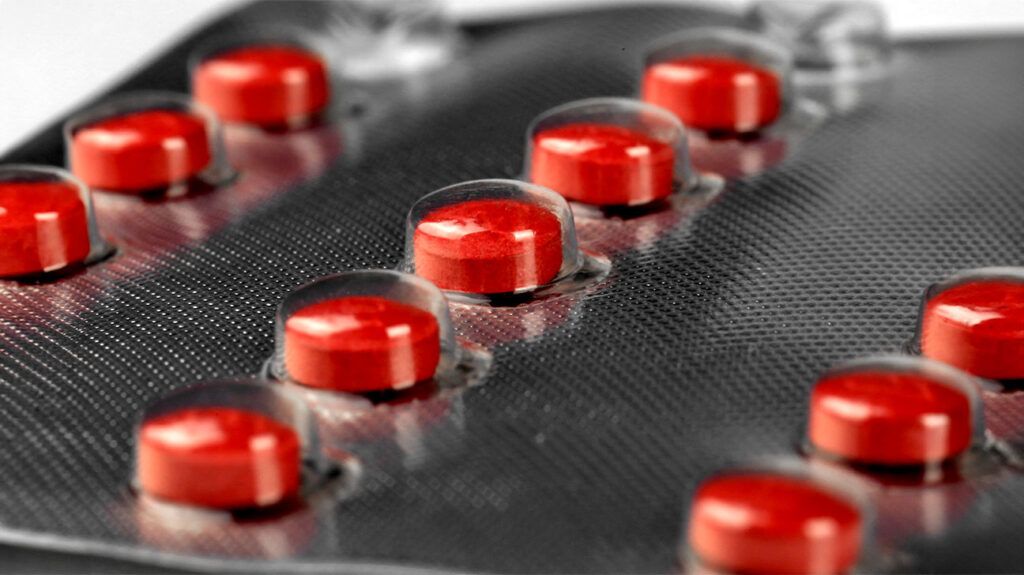In severe or difficult-to-treat cases of rosacea, doctors or dermatologists may use the oral retinol-related medication isotretinoin. It can reduce inflammation and malfunctioning of the immune system that occur in the condition.
However, because retinol and related medications can cause skin irritation, and because isotretinoin, specifically, can produce severe birth defects, they are not the right choice for everyone.
Rosacea is a common inflammatory skin condition that manifests in discoloration, flushing, and nodules on the nose, forehead, cheeks, and chin. An array of treatment options other than retinol is available.
This article discusses retinol for rosacea, including its benefits and risks. It also examines products to avoid, other treatments, and management methods for the condition.

First, it is helpful to understand the difference between retinol and retinoid. Retinoid is a derivative of vitamin A, and retinol is a type of retinoid. A distinction between them is that retinoids are stronger and generally require a prescription, while retinols are ingredients in over-the-counter products.
Oral isotretinoin is a prescription-only synthetic retinoid that dermatologists use for various skin conditions.
The research authors cited several studies that indicate isotretinoin may be effective in severe or recalcitrant cases. “Recalcitrant” denotes cases that do not respond to other treatments or cannot tolerate other treatments.
Retinols and retinoids are also in topical products. An older
What is rosacea?
Rosacea is a common inflammatory skin condition that
- discoloration
- flushing
- telangiectasia, which is the widening of tiny blood vessels that leads to a visible pattern of lines
- papules — small raised areas of skin tissue
- pustules — bulging patches of skin filled with pus
It affects the nose, forehead, cheeks, and chin. Approximately
The cause is not fully understood. It likely stems from multiple factors, including genetics, as well as impaired functioning of the immune system, nervous system, and blood vessels.
Because retinol and retinoids can irritate the skin with rosacea, the American Academy of Dermatology Association (AAD) does not recommend them for acne-like breakouts that rosacea can cause.
However, it notes that once the breakouts are under control, applying a retinoid can help prevent flare-ups and reduce signs of skin aging. That said, the AAD warns that this option is not right for every person with rosacea.
Concerning the oral retinoid isotretinoin,
Aside from the risk of causing skin irritation in people with rosacea, topical retinol and retinoids pose two serious health risks. These are an increased likelihood of cancer, along with developmental and reproductive toxicity. The latter means that the compounds may produce atypical structural formations in a fetus, otherwise known as birth defects.
The most serious risk of oral isotretinoin also entails the danger of birth defects, according to
Other side effects of isotretinoin include skin and mucous conditions, such as dryness of the nasal mucous membrane. Rare side effects include:
- insomnia
- headache
- sensitivity to sunlight
- hair loss
- joint pain
- muscle pain
- irritability
- bumps on the skin that bleed easily
- loss of appetite
Individuals with rosacea should avoid products that burn, sting, or cause irritation, such as astringent and exfoliating agents. Astringents are chemicals that cause contractions of skin cells, which manufacturers sometimes put in toners. Exfoliants are chemicals that remove dead skin cells.
Other products to avoid include those with the below ingredients:
- alcohol
- fragrance
- witch hazel
- menthol
- eucalyptus
- peppermint
Choosing allergy-tested and fragrance-free products decreases the risk of irritation. Testing a new product on a small patch of skin before use is also best. Because of the potential for irritation, experts advise using a minimal number of products.
Other treatments include topical and oral medications without retinol and non-medication interventions. A
Topical medications for different symptoms include:
- Discoloration: Treatment includes topical brimonidine (Mirvaso) or oxymetazoline (Rhofade).
- Papules and pustules: Treatment involves:
- topical azelaic acid (Azelex, Finacea, Finacea Plus)
- ivermectin (Sklice, Soolantra)
- topical metronidazole (Metrocream, Metrolotion, Noritate)
- minocycline (Amzeeq, Zilxi)
- Demodex infestation: These are face mites. Treatments include topical benzyl benzoate.
Oral medications for different symptoms include:
- Pustules and papules: Doxycycline (Acticlate, Alodox, Doryx).
- Redness and flushing: Beta-blockers, such as propranolol (Hemangeol, Inderal XL, InnoPran XL).
- Systemic autoimmune conditions: This happens when a person’s immune system attacks their own body. The treatment is hydroxychloroquine (Plaquenil, Quineprox).
Other interventions
Learn more about medications and laser treatment for rosacea.
Managing rosacea entails avoiding triggers and using special skin care.
Common triggers include:
- hot or cold temperatures
- sun exposure
- spicy food
- exercise
- alcohol consumption
- cosmetics
- marinated meat products
- medications that widen blood vessels
Skin care
- using gentle pH-balanced skin cleansers rather than soaps
- moisturizing often
- using sunscreen with an SPF of at least 30
People seeking information about the use of retinol for rosacea should see a dermatologist for a personalized treatment and skin care program. Retinoids can irritate the skin with rosacea, and isotretinoin — a retinoid treatment for severe cases — can cause birth defects.
Other treatment options are available unless someone has a severe or difficult-to-treat case.
Managing rosacea entails avoiding products with certain ingredients, such as fragrance, and avoiding common triggers — such as hot and cold temperatures. Gentle skin care is also important.
